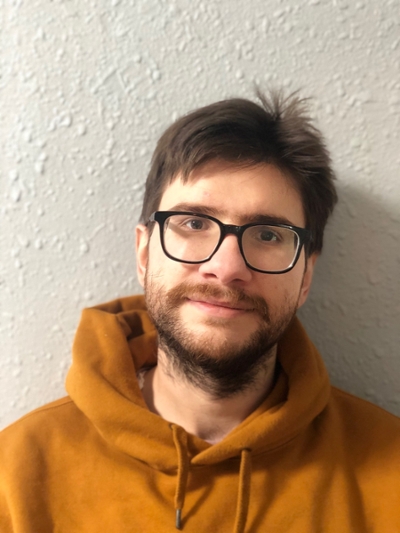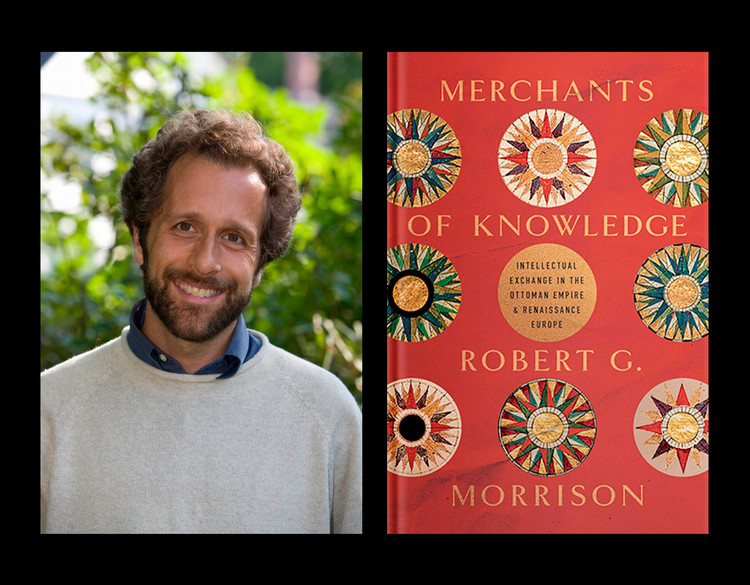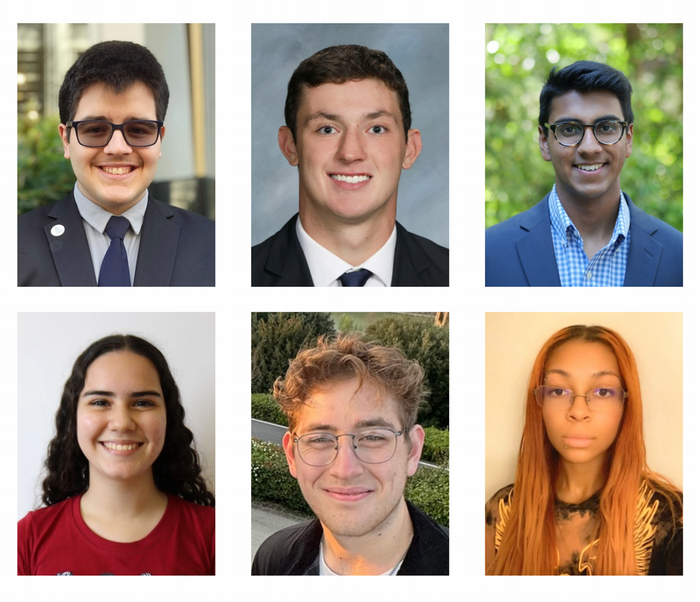Algebra, Robots, and Diversity
By Tom Porter“There are a ton of different ways to think about it,” said Assistant Professor of Mathematics Eric Ramos, when asked about his latest research, “but in essence it’s about motion planning: Imagine you have a factory using robots and they’re only allowed to move along predetermined tracks. You want these robots to perform in the most efficient way, but you never want them to collide.”

Ramos, who joined the Bowdoin faculty this summer, focuses his research and teaching on the areas of combinatorics and algebraic topology. A former National Science Foundation postdoctoral scholar at the University of Michigan, he is now the recipient of a $105,000 grant from the NSF*. Part of the award will fund his research into the particular problem of what Ramos calls “motion planning.” “It’s about finding the most efficient motion algorithm that avoids collisions,” he explained. “It’s a topology problem.”
Much of Ramos’s research looks at what happens when these notional robots move in random patterns rather than predetermined ones. He uses the computer programming language Python to simulate these random movements and the results are perhaps surprising, he said. “It isn’t always obvious why, but random patterns often tend to expose the most efficient, or nicest, outcome.” In the case of Ramos’s research, it was discovered that, when moving randomly, these simulated robots move in patterns where they wind around each other in increasingly regular ways. “There are some problems that human beings find very difficult but nature solves them automatically. In a ‘meta’ sense,” observed Ramos, “randomness often tends to favor the nicer outcome. Even though we find it tough to prove, when we run these simulations, you can see it!”
Such work has the potential to be critical in applications such as networking and robotics, he said, where artificial intelligence already plays a key role in industrial manufacturing. “I hope my research will eventually find itself into real concrete applications that can better the human experience.”

Another initiative Ramos is involved with is the mission to advance diversity and inclusiveness in the math community, and a sizeable portion of the NSF grant is going toward this. Mathematics has traditionally been the preserve of white males from more affluent backgrounds, he explained. “Even just about ten years ago, while I was attending grad school, funding agencies often had a stipulation that at least ten percent of participating scholars at sponsored conferences must be female. Just ten percent! I was shocked that this was considered diverse. We’ve come a long way since then,” he continued, “thanks to the work of groups like the Association of Women in Mathematics (AWM), of which there is a Bowdoin chapter.” Eric noted, however, that there is still a lot of work to be done, and he hopes the grant can help in this direction.
To advance this work, Ramos is organizing a series of seminars as part of the Growing up in Science initiative, which invites mathematicians from traditionally marginalized backgrounds—e.g., scholars of color, first-generation college graduates, and/or women— who will not only talk about their academic subject, but also discuss their personal story. “They will talk about how their background shaped them, and how they overcame obstacles to realize their academic goals. It’s good for students to see there are many successful scholars who come from diverse backgrounds.” The first seminar is planned for November, said Ramos, and he’s hoping to hold two or three per semester.
Grant money is also being set aside to fund related programs, explained Ramos. “I plan to support events, hosted by the local AWM chapter, where first-year students who are considering taking math and other STEM subjects can meet with upperclassmen and learn more from them about what it would be like.” Funding will also be provided for financially challenged students who want to pursue summer research projects, and to enable students to attend conferences featuring research by nontraditional math scholars.** “I am very much indebted to the NSF for awarding me this grant, as I believe it will empower me to do some good within the community here at Bowdoin, and, by extension, the mathematics community at large.”
*Grant title: LEAPS-MPS: The representation theory of combinatorial categories.
Award number: DMS-2137628.
**These conferences include:
SACNAS - https://www.sacnas.org/
NAM - https://www.nam-math.org/
AWM - https://awm-math.org/meetings/
Field of Dreams - https://mathalliance.org/field-of-dreams-conference/



